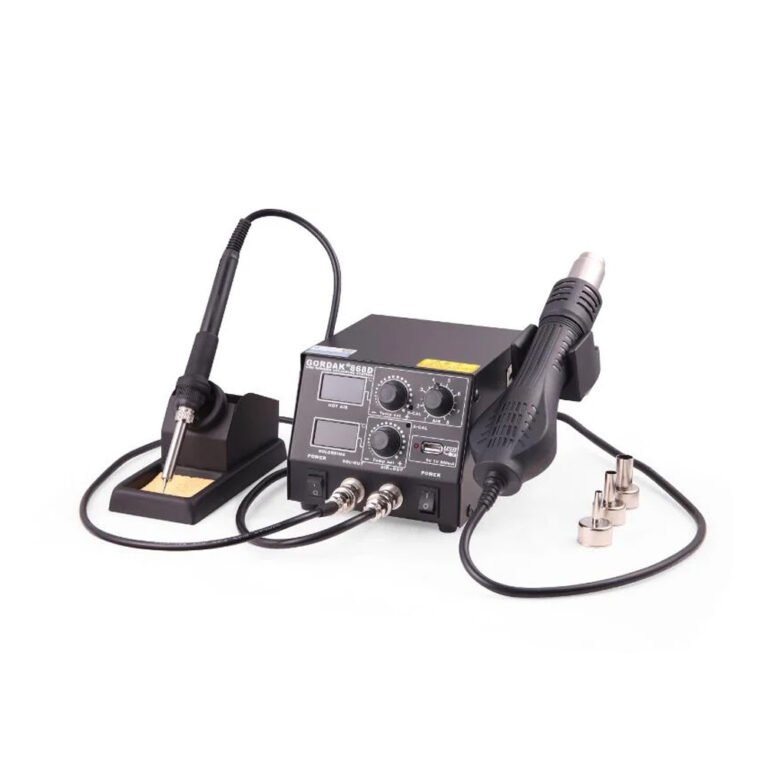Whether you are repairing a circuit board, assembling electronics, or working on precision SMD components, choosing the right soldering tip is critical. The soldering tip not only determines how efficiently heat transfers but also affects the accuracy and quality of your solder joints. Using the best soldering tips for electronics and PCB work will make your projects smoother, faster, and more reliable.
1. Why Choosing the Right Tip Matters
- Better Heat Transfer: Prevents cold solder joints and ensures solid connections.
- Improved Accuracy: Small tips let you work on fine pads without damaging nearby parts.
- Longer Tool Life: The correct tip size reduces strain on your soldering station.
- Higher Productivity: The right shape speeds up work on different soldering tasks.
2. Recommended Soldering Tip Shapes for Electronics & PCB
| Tip Type | Shape | Best Applications |
|---|---|---|
| Conical Tip | Sharp, pointed end | Small pads, fine wires, precise soldering |
| Chisel Tip | Flat edge | General PCB soldering, drag soldering, medium-sized joints |
| Bevel Tip | Angled surface | Applying more solder on larger pads or connectors |
| Knife Tip | Thin, angled blade | SMD rework, solder bridge removal, fine-pitch ICs |
| Needle Tip | Ultra-fine point | High-precision microelectronics, very small pads |

3. Factors to Consider Before Selecting a Tip
- Component Size: Match tip size to pad size for optimal heat transfer.
- Soldering Technique: Drag soldering benefits from chisel tips, while micro soldering needs conical or needle tips.
- Heat Load: Larger tips retain and transfer heat better, making them ideal for bigger joints.
- Station Compatibility: Always choose tips designed for your soldering station model.
4. Tips for Better PCB Soldering Results
- Keep the tip clean and tinned for consistent heat flow.
- Use brass wool instead of abrasive cleaners to prevent tip damage.
- Work with the lowest effective temperature to protect sensitive PCBs.
- Replace worn tips early to maintain accuracy and prevent poor solder joints.
Conclusion
The best soldering tip depends on the type of electronics work you’re doing. For general PCB soldering, chisel tips are versatile and effective. For precision jobs, needle and conical tips shine. For rework and drag soldering, knife or bevel tips are ideal. By investing in the right tips, you’ll improve your soldering quality and efficiency across all projects.
About GORDAK
As a professional manufacturer with more than 30 years of expertise, GORDAK provides a complete range of soldering and rework stations, along with high-quality soldering tips for electronics and PCB work. Designed for both beginners and professionals, GORDAK’s tools deliver precision, durability, and cost-effective performance.
Contact us: info@gordakelec.com
Soldering Tips & Techniques
The Best Soldering Tips for Electronics and PCB Work
Choosing the Right Soldering Tip for Precision Work
Temperature Guidelines for Different Soldering Applications
What Are Categories of Soldering Iron Tips


